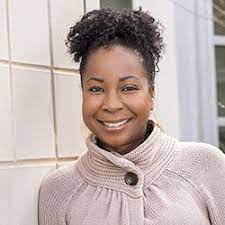Chanelle Rose
Chanelle Rose
“I Have Found it Rewarding”: Chanelle Rose (2008) on History, Africana Studies, and Moving North -- Memory #76 of 100

Today’s Project 100 memory comes from Chanelle Rose. She was born and raised in London, England. Her father and mother were born in Jamaica and moved to London in the 1960s. She has an older brother and sister. In England, her father did electrical work, and her mother was a secretary. With the help of Chanelle’s grandmother, who had become a United States citizen, the family moved to Miami in the mid-1980s. In Florida, her father worked in a hospital while also trying to break into the television and film industry, building on experiences he had begun in England. He eventually had some significant successes, including working on Miami Vice. Some of his commercials have provided significant residuals over the years. Her mother went back to school and became a Registered Nurse (RN). She went to public schools and graduated from North Miami Beach Senior High School in 1993. Always interested in history, she earned her Bachelor’s and Master’s degrees in history at Florida International University before earning her doctorate at the University of Miami in 2007.
*****
I had a really great on-campus visit at Rowan when I was on the job market. The faculty were very welcoming. I remember Bill and Emily hosting an event at their house so that I could meet students and faculty outside of the History Department. I liked Rowan’s location, which was close to Philadelphia and New York. I wasn’t excited about the weather, but I was happy that it was not as cold as Chicago. Another important person I met during the visit was Corann Okorodudu who made me feel excited about participating in Africana Studies, which had just become a major for the first time.
Once I arrived on campus, Denise Williams proved critical in welcoming me to the area. I had been in Miami since I was eleven years old, so she was very helpful in the transition. In addition to her personal support for me, she is indispensable to Africana Studies. Her knowledge of the university and its politics and its bureaucratic rules have been essential. Moreover, she has been a leader in many areas, most notably through her organizing of the extremely successful Rosa Parks luncheon. Her importance to me and to Africana Studies cannot be overstated.
I began participating in the Africana Studies program from the very beginning. I remember that during one of my first meetings, Corann announced that recent attempts to take office space from Africana Studies would only succeed over her fierce protests. She announced that she was willing to chain herself to the desk to stop the move. One of the important early initiatives that I recall was related to the Amistad Commission. I remember working with Corann, James Gaymon, Tanya Clark, and others to help educate the New Jersey public about African American history.
After I received tenure, I became Co-Coordinator of Africana Studies with Tanya Clark of the English Department. When Tanya left Rowan, I became and remain the sole Coordinator. We have done many things during a tumultuous time in Africana Studies, but I am very proud of starting the Corann Okorodudu Africana Studies Lecture Series in 2021. Corann was such an important influence on me and so many others that I decided I wanted to create this lecture series in her honor. She did so much work here at Rowan, for the local community, and for the United Nations that she deserved this honor. This will be our third year honoring her in this way. I am also really proud of Rowan joining the Model African Union program (what is now the International Model African Union program). This has provided transformative experiences for dozens and dozens of students from many different majors and backgrounds for many years now. Dean Nawal Ammar is the person who really made this possible in its current form.
Rowan has changed a lot during my time. When I first began, my students were mostly white. In recent years, there has been greater diversity, students of all different backgrounds. One of the things that I have enjoyed throughout all my years is that most of my students, no matter their background, have been eager to learn more about African American history. I have found it rewarding to hear from students that what they learned in my classes helped shape their way of seeing the world. Many of our students have been double majors in education, and it has been rewarding to hear how my classes helped mold their teaching after graduation.
*****
This is part of the Department of History’s “Project 100,” the collection and sharing of one hundred memories by Glassboro State College and Rowan University alumni and staff in celebration of the 100th anniversary of the founding of Glassboro Normal School, later Glassboro State College, and now Rowan University. Thanks to Laurie Lahey for helping proofread and edit the final versions. Email carrigan@rowan.edu with questions or corrections. You can find the Link to all of the Project 100 entries on the Web: https://chss.rowan.edu/departments/history/alumni_highlights/project_100/



